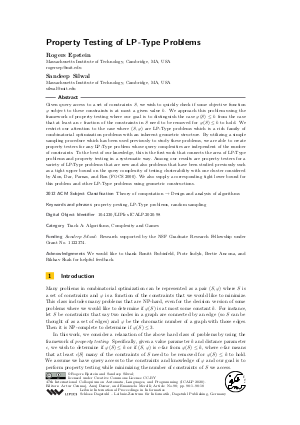LIPIcs.ICALP.2020.98.pdf
- Filesize: 0.54 MB
- 18 pages

 Creative Commons Attribution 3.0 Unported license
Creative Commons Attribution 3.0 Unported license










Feedback for Dagstuhl Publishing